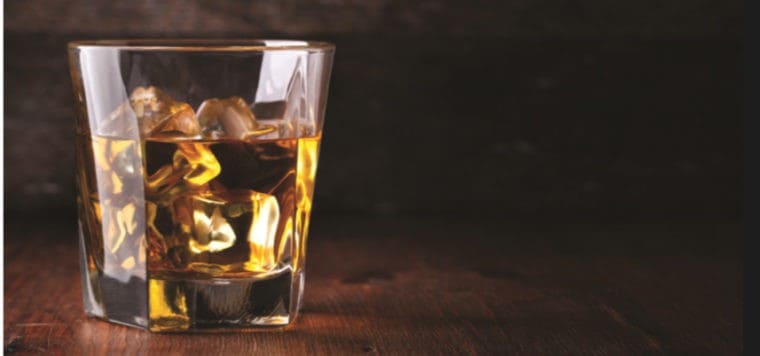Spirit of change: The Indian alcohol industry
Athough attitudes to alcohol are changing in India it is still one of the most regulated sectors in the country, thanks to a complicated tax and licensing environment, says Abanti Sankaranarayanan, Business Head, Luxury and Corporate Relations, United Spirits

India represents one of the most compelling spirits opportunities in the world. The Indian total beverage alcohol market is worth £5.3b and is forecast to grow at 8-10% CAGR in value over next 5 years. India is the second largest market for alcoholic spirits accounting for approximately 10% of global volumes according to the IWSR 2014 report. A favourable demographic dividend with an increase of 270m in the working age population by 2030 is good news for the alcobev industry. 19mn new Indian consumers enter the legal drinking age each year; 1bn+ within 10 years. So the economic and demographic opportunity is extremely attractive.
Traditionally, alcohol has been a part of celebrations in India; increasingly the social barriers to enjoying alcohol within the family or at traditional celebrations are being discarded. Attitudinal changes within the consumer segment, such as women enjoying an evening out over a drink or young adults in Tier-2 cities, those with populations over one million, meeting up with their friends for a drink, are increasing. The increase in disposable incomes and transformation in lifestyles is juxtaposed with the gradual erosion of social taboos around the consumption of alcohol beverages. So the convergence of economic opportunity and social and attitudinal change makes for a very attractive scenario for the alcohol beverage industry.
Indians certainly enjoy international alcohol brands, however consumption is still underpenetrated compared to other emerging markets. This category is usually led by the affluent and upper middle class in metro cities. Its growing popularity can also be noticed among young professionals and entrepreneurs who migrate from local brands to international brands.
Currently, India is Diageo’s second largest market and a major contributor to its global ambitions. Earlier this year, Diageo integrated its India business with United Spirits to create a single operating entity. This convergence of India’s largest spirits company by volume, comprising a strong portfolio of brands straddling every market segment coupled with an enviable distribution network, and Diageo’s portfolio of iconic brands, is expected to transform our business in India.
However, alcohol continues to be one of the most regulated sectors in the country today, at both the Federal level as well as in the States within whose purview the Indian Constitution places this industry. The multiplicity of States creates a complex tax and licensing environment that limits economies of scale and reduces the ability of new manufacturers and new products to achieve national distribution and gain competitive advantage. Inter-state taxes effectively prohibit the free transit of goods across the country. Licensed retail availability is very low, with one outlet per 18,000 people.
Necessary changes
The Indian Government is moving towards a simplification of taxes, which should reduce bureaucracy and costs for many industries. It plans to introduce a Goods and Services Tax to replace a range of existing indirect taxes. The GST has been touted as the panacea for resolving the situation created by the host of taxes currently levied by Central and State Governments. Such a dramatic change in the taxation scenario would help to provide a national common market for Goods and Services, spur economic growth by removing the cascading of taxes while at the same time providing for increased compliance and better administration. Unfortunately, the government has not included Alcohol Beverages in the Constitutional Amendment Bill on GST. This is despite the industry’s representation that a GST audit trail will provide greater exposure of unreported activities, increase transparency and thus excise revenue, as well as reduce public health concerns.
Moreover, permitting alcobev companies to freely price their products is critical to the long-term sustainability of the alcobev business and of excise revenues generated by the sale of such products. The current government has vowed to make ‘ease of doing business in India’ a reality and we are hopeful that we will see the effect of that soon.
USL has a big role to play in the government’s ‘Make in India’ ambition. We have a bottling plant in nearly every state, we provide employment to over 11,000 people, and contributed Rs.35,000 crores to the exchequer in the last fiscal.
Diageo and USL share the World Health Organisation’s goal of reducing alcohol related harm and set out to address this through every one of our responsible drinking programmes, partnerships and campaigns. Through our various initiatives we aim to combat alcohol misuse, set rigorous standards for responsible marketing and promotion for ourselves and the industry. We believe that efforts to reduce the misuse of alcohol are most effective when Government, civil society, individuals and families, as well as the industry work together. Over the past year, we partnered with the government, NGO’s and educational institutes to implement programmes to prevent drink driving and underage drinking. Our Road to Safety programmes have imparted road safety and drink drive education to thousands of police officials, commercial drivers, and university students across 30 India cities.
The alcobev industry has been engaging with the government, presenting logical perspectives and international best practices. We are seeing some green shoots where the government is prepared to give the industry a fair hearing and are hopeful of win-win solutions that will enable us to deliver on the enormous potential that India holds.



